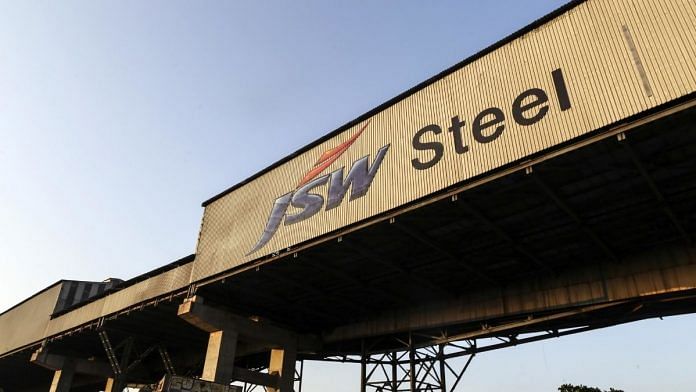Mumbai/New Delhi: India’s JSW Group, which runs emissions-heavy businesses including steel, cement and energy, plans to switch a majority of its bonds to green instruments as the industrial giant seeks access to longer-term borrowings.
Raising debt overseas through green and sustainability-linked bond issues will allow the group led by tycoon Sajjan Jindal to almost double its tenure to 10 years, as longer term financing is increasingly difficult for companies raising funds in India, Group Chief Financial Officer Seshagiri Rao said in an interview. There is a “high-probability” the company will switch to only selling sustainability-linked bonds or green bonds over the next five years, he said.
Green bonds are instruments used to raise money for environmentally friendly projects. SLBs, on the other hand, may be used more broadly, but are linked to sustainability targets such as carbon reduction. In India, companies including JSW more often issue these bonds overseas as the local market isn’t as mature. India’s bond sales with green or sustainability labels totaled about $6.9 billion in 2021 from $875 million the prior year, according to data compiled by Bloomberg.
Companies across the world are increasingly raising sustainable debt through instruments linked to their environmental goals as pressure intensifies from investors and regulators. In the metals and mining sector, billionaire Andrew Forrest’s iron ore giant Fortescue Metals Group Ltd. raised money through a green bond earlier this month.
For JSW, which has at least $2.15 billion of international bonds coming due by 2027, tapping the overseas market would be crucial as Indian lenders are wary of longer-term loans to the infrastructure sector following a lingering credit slowdown, made worse by a crisis in the shadow banking industry some years back.
The group — with an annual revenue of $13 billion — raises a third of its funds through bonds and the rest through export credit agencies and external commercial borrowings, Rao said.
“More and more investors, banks and the entire financial system will look to investing only in those companies which are ESG-compliant and those firms which have a roadmap on how they will reduce emissions,” Rao said from his office in Mumbai. “Otherwise raising financing itself will become difficult in the future. So the company has to evolve in that direction.”
Going green
The group has raised about $1.6 billion via SLBs and green bonds. Last year, flagship JSW Steel Ltd. raised a $500 million SLB that was linked to its ability to trim emissions from three mills in India by about 23% to around 1.95 tons of carbon dioxide per ton of crude steel produced by the end of the decade. The target took into account emissions from the company’s own production — scope 1 — and energy usage — scope 2. JSW will have to pay a one-time coupon step-up of 37.5 basis points if it fails to meet the commitments.

The group has outlined plans to spend $1 billion to cut emissions at its steel mills and 750 billion rupees ($9.8 billion) to shift its power business, JSW Energy Ltd., away from coal to renewable sources.
While changes at industries like the group’s steel and cement operations — traditionally among the biggest polluters — are being made in the backdrop of India’s own national target to turn carbon neutral by 2070, a large part of the push is being driven by overseas investors and customers.
For JSW Steel, which sells about a quarter of its total exports to Europe, the region’s plans to impose a border tax on carbon-intensive imports such as steel and aluminum is adding momentum to its plans to cut emissions, Rao said.
The mill is automating its processes to measure real-time carbon emissions against the monthly data it currently collects, in preparation for the new rule before it ships products out to Europe, Rao said. The steel unit has cut overall emissions by almost 27% since 2005, he said.
“Right now the entire strategy is to continue to expand and ensure that the carbon emissions are comparable with the rest of the world in terms of the blast furnace process of steel-making,” Rao said. –Bloomberg
Also read: JSW Utkal Steel receives environmental clearance for Rs 65,000 crore steel plant in Odisha



